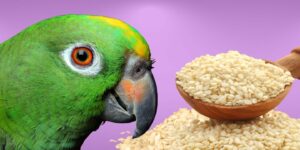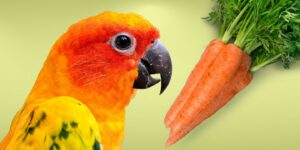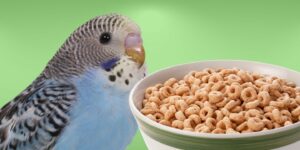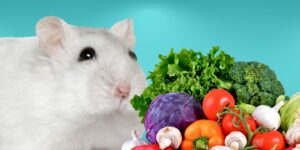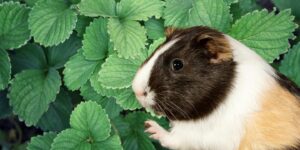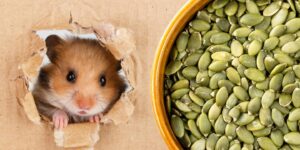Understanding the dietary needs of guinea pigs is essential to keeping them healthy and happy. While some pet owners may wonder if guinea pigs can eat meat, it is important to know that these animals are herbivores and must maintain a plant-based diet.
The Herbivorous Nature of Guinea Pigs
Evolution and Natural Diet
Guinea pigs have evolved as herbivores, and their natural diet consists mainly of grasses, leaves, and other plant materials. This has shaped their digestive system and overall physiology, making them unsuitable for consuming meat.
Digestive System Limitations
Guinea pigs have a specialized digestive system designed to break down plant materials. They lack the necessary enzymes and digestive capabilities to process animal proteins and fats, which can lead to serious health issues if meat is consumed.
Health Risks Associated with Feeding Meat to Guinea Pigs
Indigestion and Gastrointestinal Problems
Feeding guinea pigs meat can cause indigestion, bloating, and diarrhea, leading to discomfort and potential dehydration.
Nutrient Imbalances
Meat consumption can lead to nutrient imbalances in guinea pigs, as it may cause them to consume less of their essential plant-based foods, which provide vital nutrients such as vitamin C.
Obesity and Related Health Issues
High-fat meats can contribute to obesity in guinea pigs, increasing the risk of heart disease, diabetes, and other health problems.
Alternatives to Meat: Protein Sources for Guinea Pigs
Guinea pigs can obtain adequate protein from plant-based sources, including:
Legumes
Peas, beans, and lentils can provide a good source of protein for guinea pigs when fed in moderation.
High-Protein Vegetables
Some vegetables, such as broccoli and kale, contain higher levels of protein and can be included in a guinea pig's diet.
Pellets
Commercially available guinea pig pellets often contain a balanced mix of nutrients, including protein, and should be fed in appropriate amounts.
Additional Dietary Considerations for Guinea Pigs
Vitamin C Supplementation
Guinea pigs cannot synthesize vitamin C and require supplementation through their diet. Ensure your guinea pig receives sufficient vitamin C through vegetables or supplements.
Hay and Dental Health
Unlimited access to hay is essential for guinea pigs, as it not only provides essential fiber for digestion but also helps maintain their dental health by wearing down their constantly growing teeth.
Avoiding Toxic Foods
Certain foods, such as onions, garlic, and avocado, are toxic to guinea pigs and must be avoided.
Signs of an Unhealthy Diet in Guinea Pigs
Monitor your guinea pig's health and look for signs of an unhealthy diet, such as:
- Weight loss or gain
- Lethargy
- Diarrhea or constipation
- Dull coat
- Dental issues
Final Thoughts: The Importance of a Balanced Diet for Guinea Pigs
It is essential to understand that guinea pigs cannot eat meat and should maintain a balanced, plant-based diet to ensure optimal health. By providing a variety of vegetables, hay, and pellets, pet owners can help their guinea pigs thrive and enjoy a long and healthy life.



